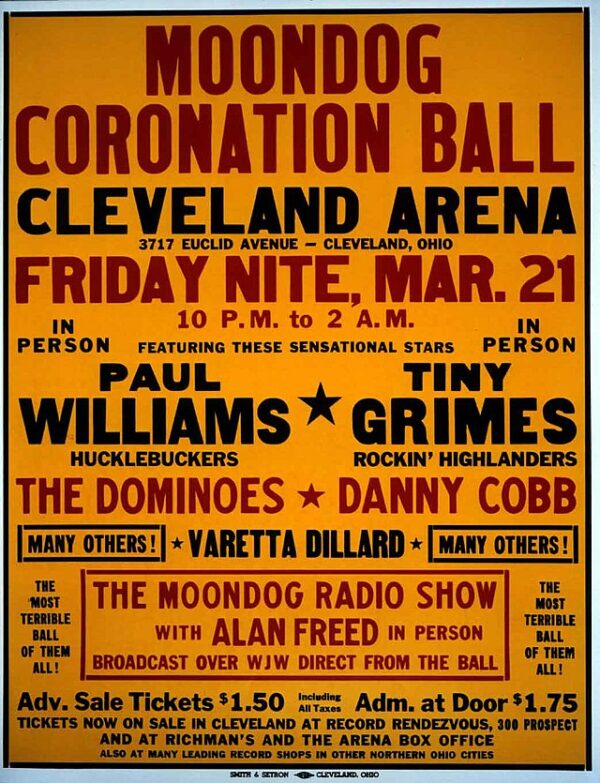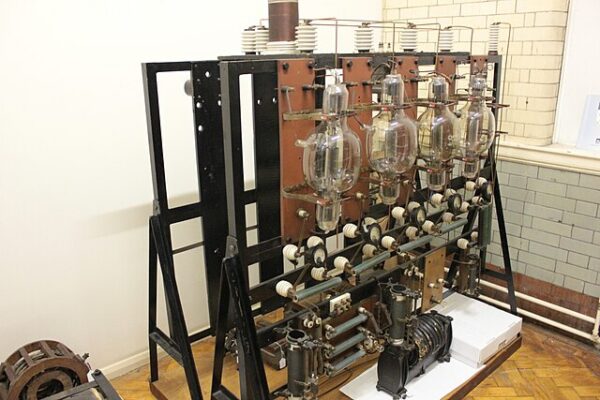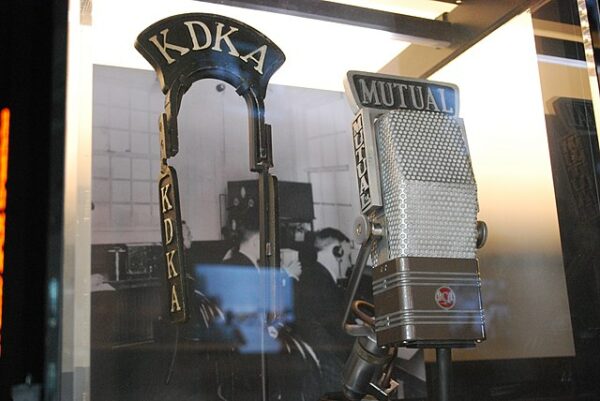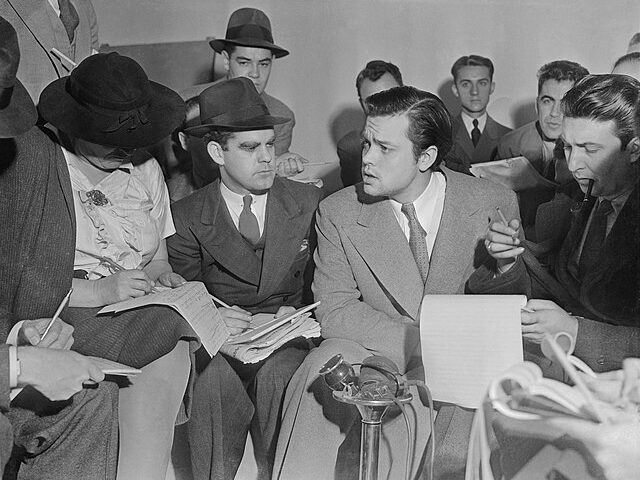Cleveland, Ohio is the home of the Rock and Roll Hall of Fame for a reason. Cleveland Magazine explains, “Many claim that the defining moment that makes Cleveland “the birthplace” of rock started back in the early 1950s, with help from radio disc jockey Alan Freed. His radio show on WJW in Cleveland was gaining popularity because of the kind of music he was playing for his mostly white audience.
The music experience in the United States was split in half – by race. White audiences were listening to the likes of Frank Sinatra and Dean Martin, while African American audiences were listening to rhythm and blues, which was referred to as “race music” at that time.
Freed became great friends with Leo Mintz, owner of Record Rendezvous record store. Mintz’s store was making waves as one of few places where white people could listen to and purchase “race music.” Mintz convinced Freed to start playing this music on his radio show, but they changed the genre’s name to a borrowed term from old blues tunes – rock and roll – which was actually a term for fornication.
The results were positively astounding. The audience – particularly white teenagers – were being exposed to a new sound their parents and grandparents often didn’t approve of.”
On March 21, 1952, Freed organized a dance that launched Rock and Roll mainstream. He hosted a Rock concert.
The History Channel writes, “The scene outside the Cleveland Arena on a chilly Friday night in March more than 50 years ago would look quite familiar to anyone who has ever attended a major rock concert. But no one on this particular night had ever even heard of a ‘rock concert.’ This, after all, was the night of an event now recognized as history’s first major rock-and-roll show: the Moondog Coronation Ball, held in Cleveland on March 21, 1952.
The ‘Moondog’ in question was the legendary disk jockey Alan Freed, the self-styled “father of rock and roll” who was then the host of the enormously popular “Moondog Show” on Cleveland AM radio station WJW. Freed had joined WJW in 1951 as the host of a classical-music program, but he took up a different kind of music at the suggestion of Cleveland record-store owner Leo Mintz, who had noted with great interest the growing popularity, among young customers of all races, of rhythm-and-blues records by black musicians. Mintz decided to sponsor three hours of late-night programming on WJW to showcase rhythm-and-blues music, and Alan Freed was installed as host. Freed quickly took to the task, adopting a new, hip persona and vocabulary that included liberal use of the phrase “rock and roll” to describe the music he was now promoting. As the program grew in popularity, Mintz and Freed decided to do something that had never been done: hold a live dance event featuring some of the artists whose records were appearing on Freed’s show. Dubbed “The Moondog Coronation Ball,” the event was to feature headliners Paul Williams and his Hucklebuckers and Tiny Grimes and the Rocking Highlanders (a black instrumental group that performed in Scottish kilts). In the end, however, the incredible popular demand for tickets proved to be the event’s undoing.
Helped along by massive ticket counterfeiting and possibly by overbooking on the part of the event’s sponsors, an estimated 20,000-25,000 fans turned out for an event being held in an arena with a capacity of only 10,000. Less than an hour into the show, the massive overflow crowd broke through the gates that were keeping them outside, and police quickly moved in to stop the show almost as soon as it began. On the radio the very next evening, Alan Freed offered an apology to listeners who had tried to attend the canceled event. By way of explanation, Freed said: ‘If anyone…had told us that some 20 or 25,000 people would try to get into a dance—I suppose you would have been just like me. You would have laughed and said they were crazy.’”
In the end, Rock ‘n’ Roll may save us all and it got a major boost from an Ohio disc jockey on this date in 1952.






